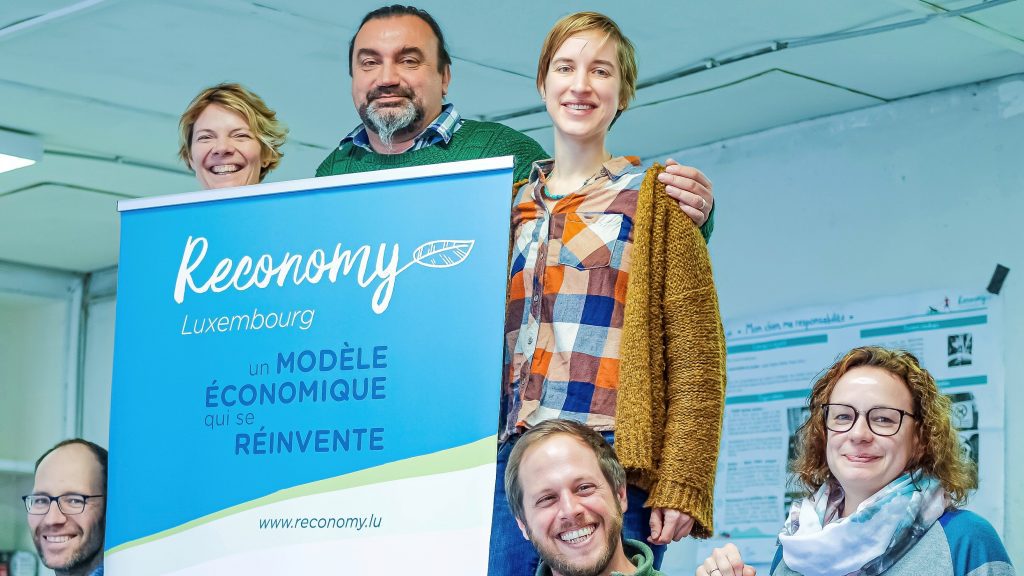Ten years of Transition in Luxembourg
By Guest Author 8th November 2020 Culture & Society
By Wolf von Leipzig- first published in Télécran in September 2020.
Translated by Norry Schneider (German version below).
In 2010, after the failure of the Copenhagen World Climate Summit, a new idea paved the way: Transition. Ten years later, the movement has also taken root in Luxembourg. Today there are dozens of initiatives throughout the country. Télécran gives an insight and overview.
Origin of the Transition Movement
The "Transition" movement was born as a response to the environmental and social crisis arising from climate change. Co-founder and mastermind of the Transition movement is Rob Hopkins, a permaculture teacher in Totnes, southern England. The movement has its origins in the small town of 8500 inhabitants, where it has implemented its first projects. In the meantime, more than 2000 projects in 50 countries around the world have emerged from it. The Transition sees itself as a "grassroots" movement, which is central to citizen participation. In view of far-reaching changes such as climate change and the looming end of the age of fossil fuels, community initiatives at local level are intended to lay the foundations for environmental and social change.
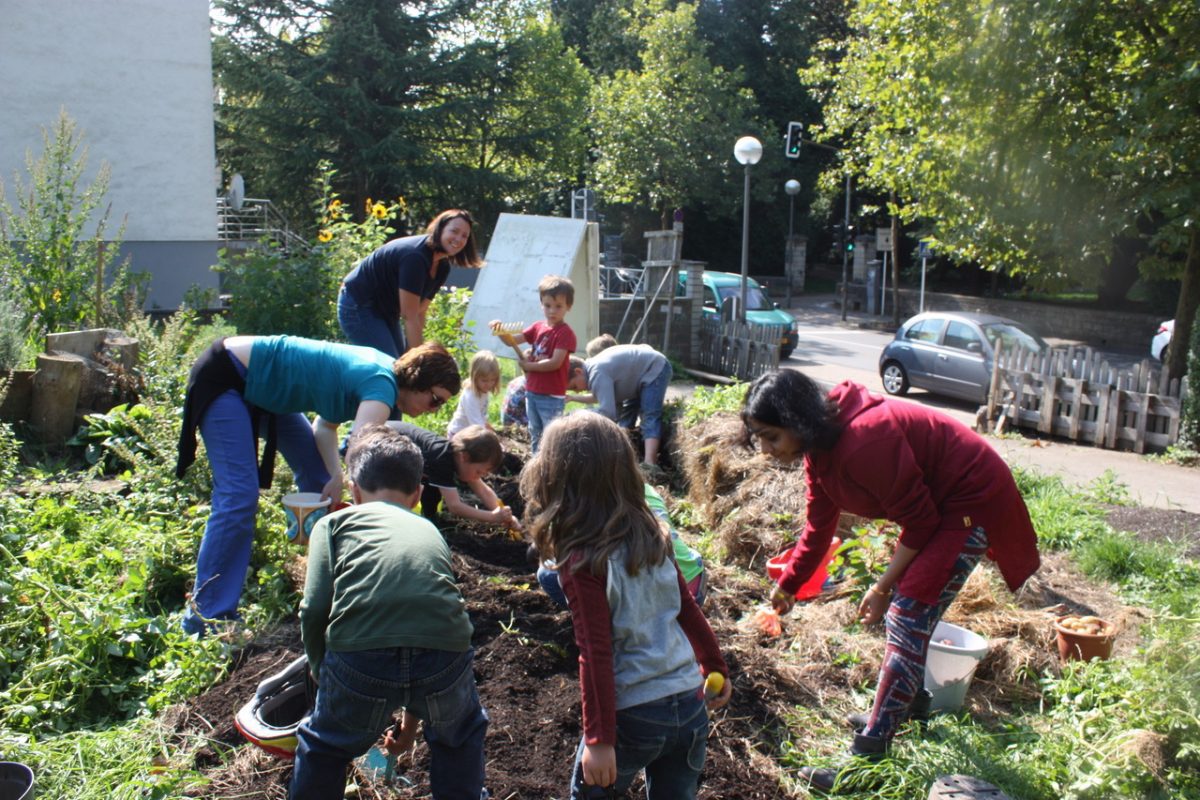
Think globally, act locally
When people talk about environmental and climate protection, they think of Greenpeace, the ecological movement or, more recently, Fridays For Future and Extinction Rebellion. The Transition movement is less well known, yet it is extremely present in Luxembourg. But what does it actually stand for and what exactly does it do?
Transition was born out of the perception that the world and society are facing enormous upheavals in the years to come, particularly with climate change and the end of cheap fossil fuels. With the apparent failure of politics in recent years to act decisively against this acute threat and to take effective measures, the hour of the Transition movement came.
Instead of waiting or clinging to a utopia, Transition stands for action in the here and now. It is about showing that through concrete and positive action everyone is able to act, be creative and use their abilities: Citizens who create their own currency, cultivate their own vegetable patch, develop alternative economies, build differently or set up an energy cooperative.
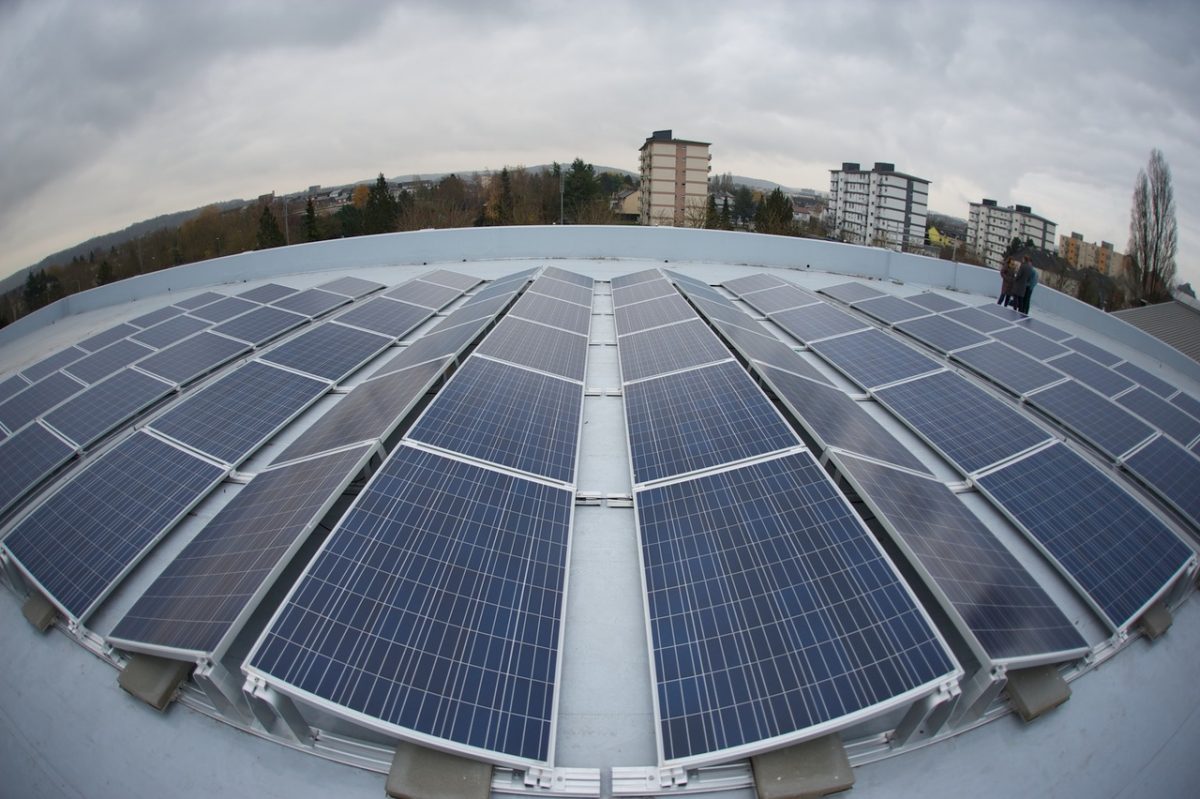
Story of disappointment
The origins of the Transition movement in Luxembourg go back a decade, when Katy Fox from Luxembourg founded the Centre For Ecological Learning Luxembourg (CELL) in 2010 with a number of like-minded people.
The idea came from the UK, where she holds a doctorate in anthropology. One important impetus was the “Copenhagen shock”, the failure of the 2009 Copenhagen World Climate Summit: “It was a terrible disappointment,” says Norry Schneider, CELL coordinator, “and the question arose: What can be done now anyway? So we first set ourselves a goal and then looked at how to get there. The aim is to make Luxembourg society less dependent on fossil fuels in order to be able to respond better to climate change and the resulting problems”.
Initiatives at local level
Transition is a “grassroots” movement, supported by citizens and organised in a decentralised way. Its main objectives are: To reduce the consumption of energy and resources, and thus greenhouse gas emissions, in order to limit the consequences of climate change; to strengthen the “resilience” of the earth by “relocalising” the economy, starting with food production; to promote cooperation and solidarity between local actors and to support the acquisition of practical skills, thus strengthening local autonomy.
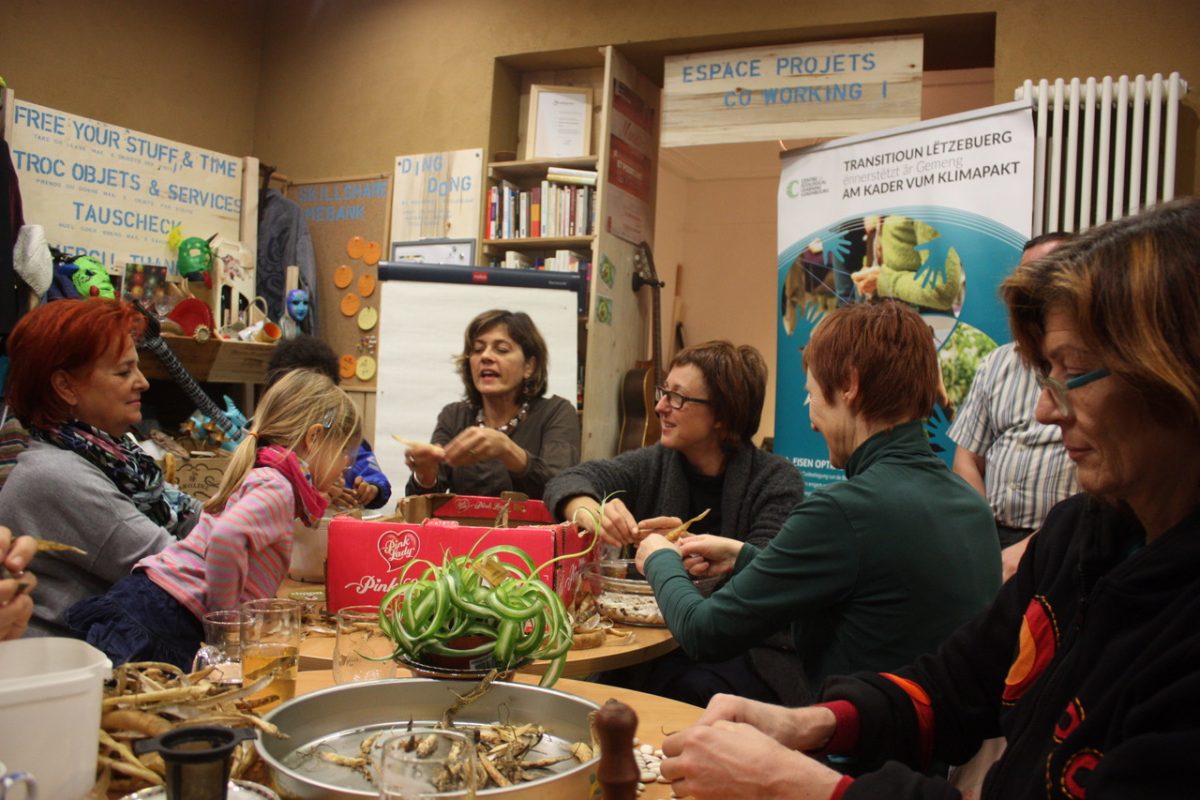
CELL is the core of the movement. This is where the various initiatives in the country come together to promote environmental, social and economic change. “We are a movement that does not see itself as politically tinged,” explains Schneider. “But it has become clear that we need to professionalise and have a common platform so that the whole thing doesn’t fall apart again all at once,” Schneider explains.
The first two local groups in this country were set up in Esch/Alzette with Transition Minett, focusing on community gardens, nutrition and energy, and in Luxembourg also with a focus on community gardens. This has resulted in the Terra cooperative on the Eecher Feld, the community gardens in Esch and in the Petrus valley, the Maison de la Transition in Esch/Alzette and the TM Enercoop energy cooperative. In addition, local initiatives such as Transition Bonneweg and Transition Westen have been developed.
“The cooperative is the form of society that best suits our ideas,” explains Schneider. In 2016, we opened the Maison de la Transition in Esch/Alzette – out of the consideration that we need a place where citizens can think about and try out the world of tomorrow – in short, a house where the future is shaped. The restaurant and the shop make it easy to get started. The idea is actually that places like this should be created everywhere, whether it is a restaurant or something else.
Äerdschëff and Bamhaus
The Transition Luxembourg platform, launched in 2010 on the initiative of CELL, is now made up of many regional groups (Luxembourg City, Minett, Uelzechtdall, Norden, Our, Osten, Westen, etc.), various themes (permaculture, urban gardening, seeds, energy, economic models, do-it-yourself, repair cafés) and field projects (Äerdschëff, Climate Pact and citizen participation, REconomy, Earth our Garden and intercultural gardens).
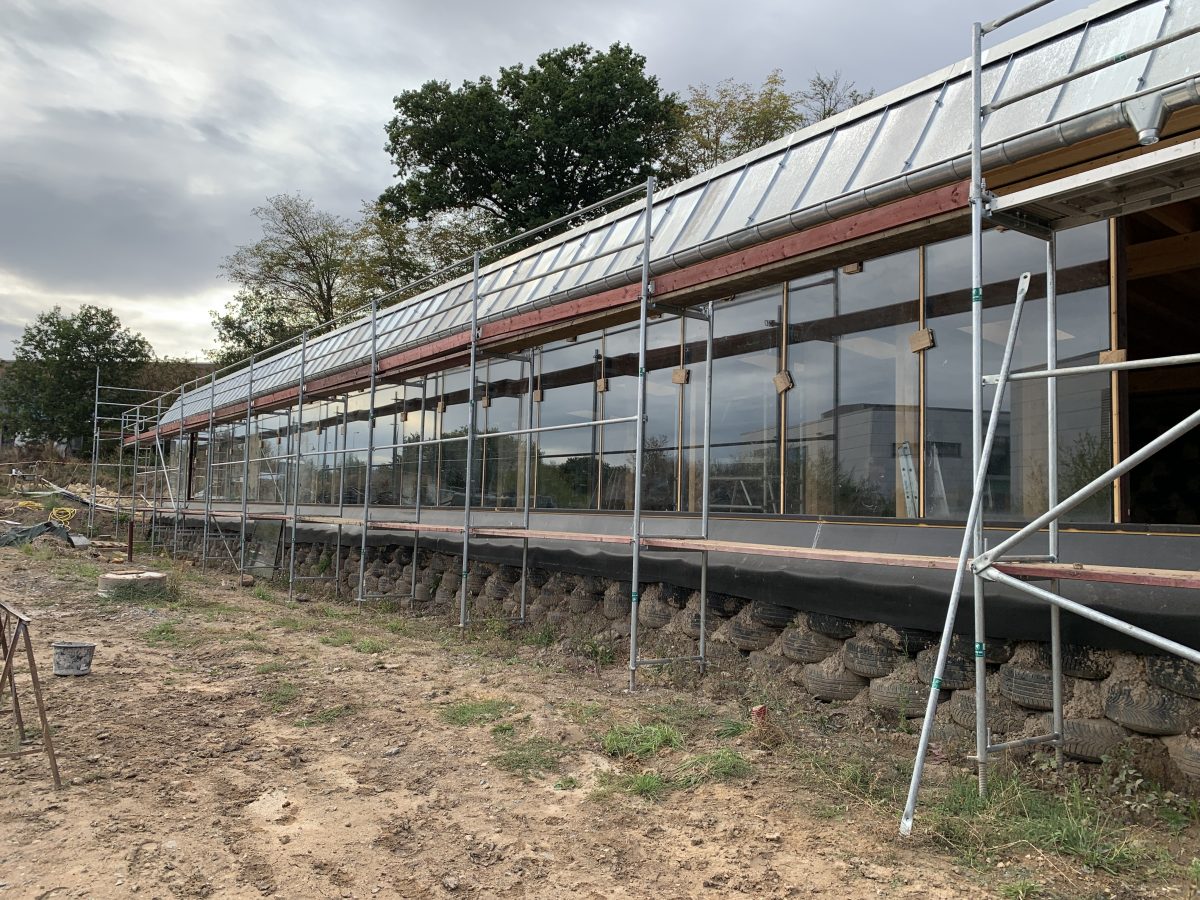
In 2014 a convention was signed in which the Ministry of the Environment mandates CELL to support the municipalities in the country in implementing the Climate Pact, especially in the area of citizen participation.
Today the CELL employs almost 20 people, some of them part-time. Most of them work in the Maison de la Transition and the Facilitec Centre in Esch/Alzette, some for Äerdschëff in Redange and others in the creative workshop Bamhaus in Dommeldange.
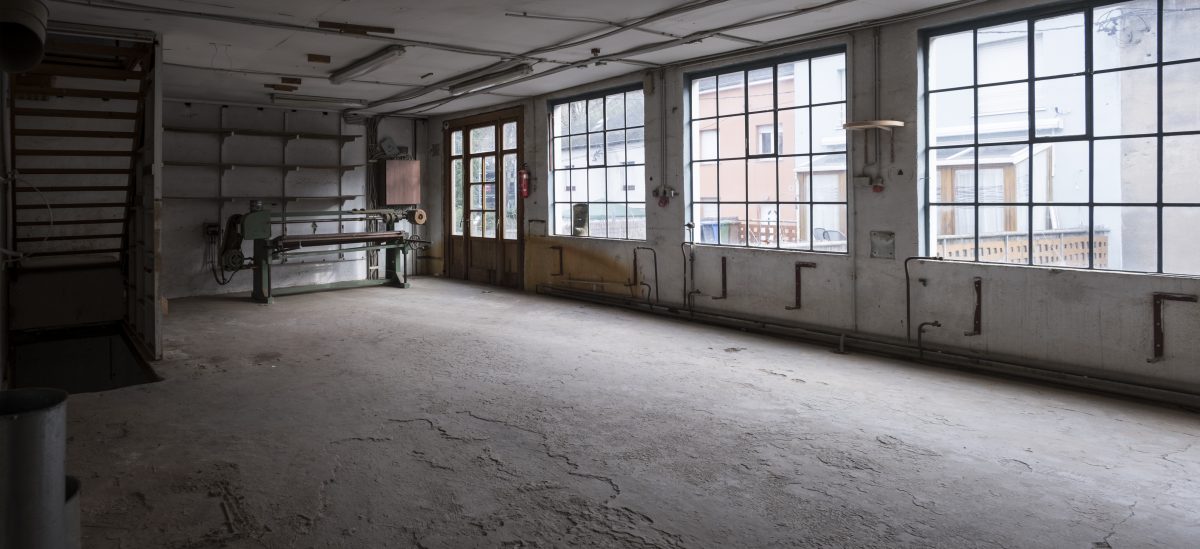
The co-founder of the Transition movement Rob Hopkins strikes a hopeful note in his book From What Is To What If. Unleashing the Power of Imagination to Create the Future We Want. In it, he sums up the credo of Transition: “If we wait for governments, it will be too late. If we act as individuals, it will be too little. But if we act as a community, it could be just enough and just in time”.
Transition Days
Originally, the CELL had planned a major event on "Post-Growth" for July 2020. After the corona pandemic thwarted the plans, an alternative programme was drawn up. The focus is on the topic "Resilience - what does it mean?" and concrete experiences with it. Transition movement cofounder Rob Hopkins will kick off the Transition Days with a live conference on 17 September in the Neimënster. At the same time, the film documentary "Eng Äerd" will be released, a cooperation with the "Centre national de l'audiovisuel (CNA)", which presents initiatives for a "better world of tomorrow". More information: transitiondays.lu and engaerd.lu
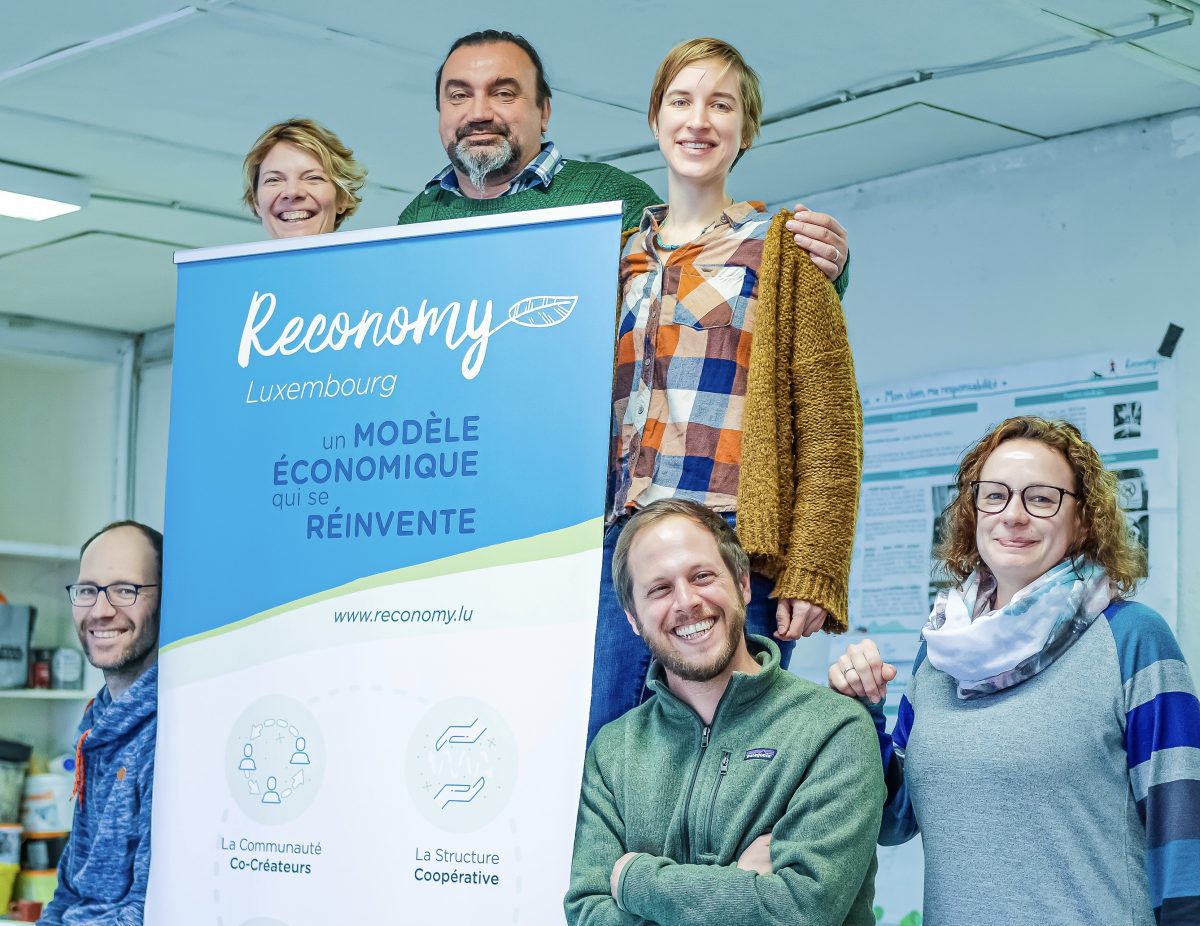
Transition Coordinator Norry Schneider:
“Everyone can make a contribution to change”
Norry Schneider is co-founder of Transition Minett and since 2015 coordinator of the Centre For Ecological Learning (CELL), also known as Transition Hub Luxembourg. He is also Vice-President of Luxembourg’s High Council for Sustainable Development.
What does the Transition movement stand for?
It wants to shape and cushion the transition to a society that is more supportive, fairer and more ecological. This cannot be done with a crowbar, but it must be done quickly, because the problem is that the window of opportunity is closing more and more.
Can the climate be saved at all?
We have passed a number of “tipping points” and cannot go back. Until recently we might have been able to do so, but we have missed that opportunity. That is why we have to find other ways forward. The climate, biodiversity, water supplies and other resources are increasingly threatening to lose their balance.
Where does the transition start?
Our starting point is to strengthen the social competence of a society. We talk about communities. That does not mean that people should withdraw. A community can be a school, a company, a neighbourhood, a local authority. At this level we have lost a great deal over the past decades, and there is much to build here.
Is there an example of this?
When we started ten years ago, permaculture was a big issue. And so some people started to create community gardens. We try to create gardens where they are not isolated, but preferably in the middle of a neighbourhood. However, because of the great demand, we are no longer able to do the projects ourselves, but only to accompany them.
How are the projects financed?
Our work is largely financed by the Ministry of the Environment. Support also comes from the OEuvre Grande-Duchesse Charlotte, from etika, and from some local authorities, including Wiltz (in the north of the country). The city of Esch/Alzette (in the south) also finances many Transition Minett projects, such as Facilitec, a centre for circular economy, and subsidises the Maison de la Transition. We are cautious about financing from private sources such as foundations and companies, but one should “never say never”.
What exactly is the role of the CELL?
We want people to be inspired by practice, as in the film documentary “Eng Äerd”. People are aware of the problems, only they ask themselves: What can I do as an individual in the big picture? They do not know how to balance their contribution to change, their work and their family. And that creates a lot of stress.
Is that enough to make a difference?
We are sometimes not take seriously because what we do is “small and cute”, while the challenges are enormous. Of course, we don’t make much of a difference on our own, but it helps to gradually take things to the next level by making a real difference through people. The issue of “resilience” in the food system has led to the creation of a Luxembourg Food Council and a national strategy “Urban Farming”. We bring with us the practical experience that other actors sometimes lack. So there is real complementarity.
Zehn Jahre Transitionsbewegung in Luxemburg
2010, nach dem Scheitern des Weltklimagipfels von Kopenhagen, bahnte sich eine neue Idee ihren Weg: die „Transition“. Zehn Jahre danach hat die Bewegung auch in Luxemburg Wurzeln geschlagen. Heute gibt es Duzende Initiativen im ganzen Land. „Télécran“ gibt einen Ein- und Überblick.
Ursprung der Transitionsbewegung
Geboren wurde die Bewegung der „Transition“ (Übergang) als Antwort auf die sich mit dem Klimawandel abzeichnende ökologische und gesellschaftliche Krise. Mitbegründer und Vordenker der Transitionsbewegung ist Rob Hopkins, Dozent für Permakultur im südenglischen Totnes. In der Kleinstadt mit 8500 Einwohner hat die Bewegung ihren Ursprung, hier hat sie ihre ersten Projekte umgesetzt. Inzwischen sind daraus mehr als 2000 Projekte in 50 Ländern der Welt entstanden. Die Transition versteht sich als eine „Graswurzel“-Bewegung, was für die Bürgerbeteiligung zentral ist. Angesichts tiefgreifender Veränderungen wie dem Klimawandel und dem sich abzeichnenden Ende des Zeitalters fossiler Brennstoffe, sollen Gemeinschaftsinitiativen auf Lokalebene die Basis für einen ökologischen und gesellschaftlichen Wandel legen.
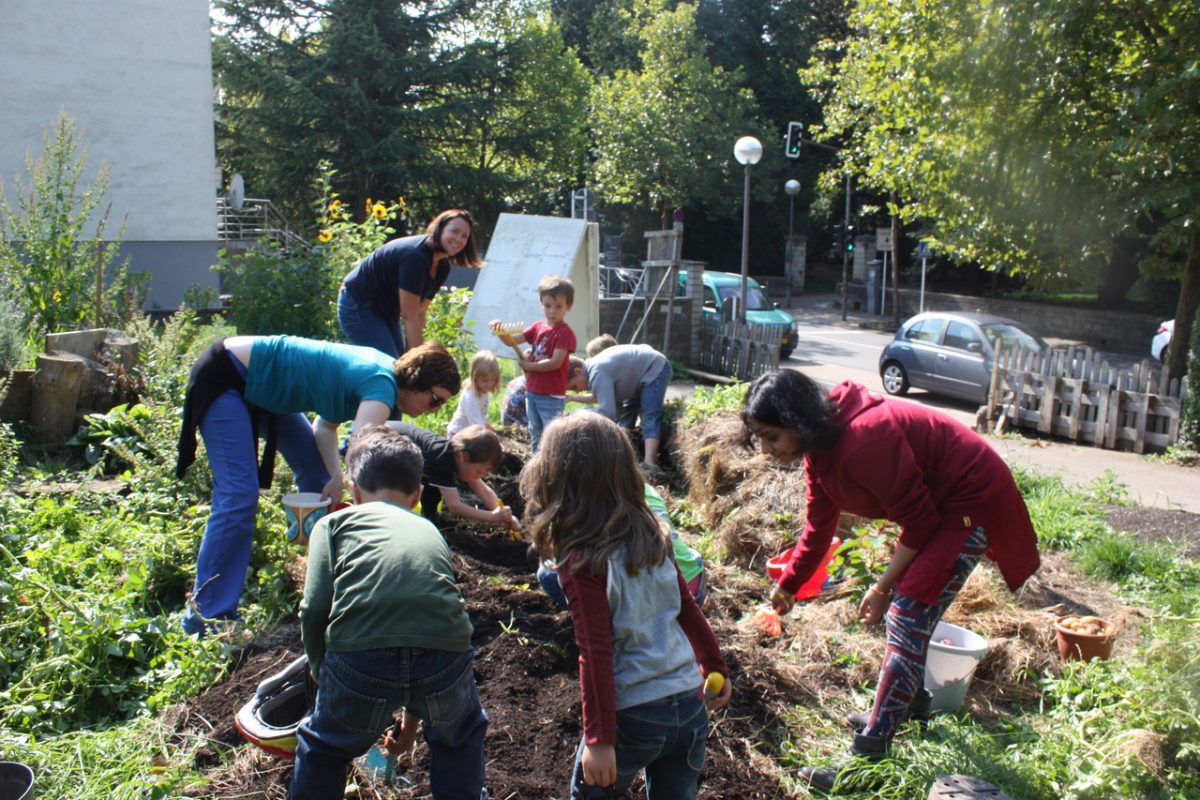
Global denken, lokal handeln
Wenn von Umwelt- und Klimaschutz die Rede ist, denkt man an Greenpeace, Mouvment écologique oder jüngst auch „Fridays For Future“ und „Extinction Rebellion“. Weniger bekannt ist die Transitionsbewegung, und doch ist sie gerade in Luxemburg überaus präsent. Doch wofür steht sie eigentlich und was macht sie genau?
Die Transition ist aus der Wahrnehmung entstanden, dass die Welt und die Gesellschaft in den kommenden Jahren vor enormen Umwälzungen stehen, die insbesondere mit dem Klimawandel und dem voraussichtlichen Ende billiger fossiler Energie einhergehen. Mit dem augenscheinlichen Versagen der Politik, in den vergangenen Jahren entschlossen gegen die akute Bedrohung vorzugehen und wirkungsvolle Maßnahmen zu ergreifen, kam die Stunde der Transitionsbewegung.
Statt abzuwarten oder einer Utopie anzuhängen, steht die Transition für ein Handeln im Hier und Heute. Es geht darum zu zeigen, dass durch konkrete und positive Maßnahmen jeder in der Lage ist, zu handeln, kreativ zu sein und seine Fähigkeiten zu nutzen: Bürger, die ihre eigene Währung schaffen, ihr Gemüsebeet bestellen, anders „wirtschaften“, anders bauen oder eine Energiegenossenschaft gründen.
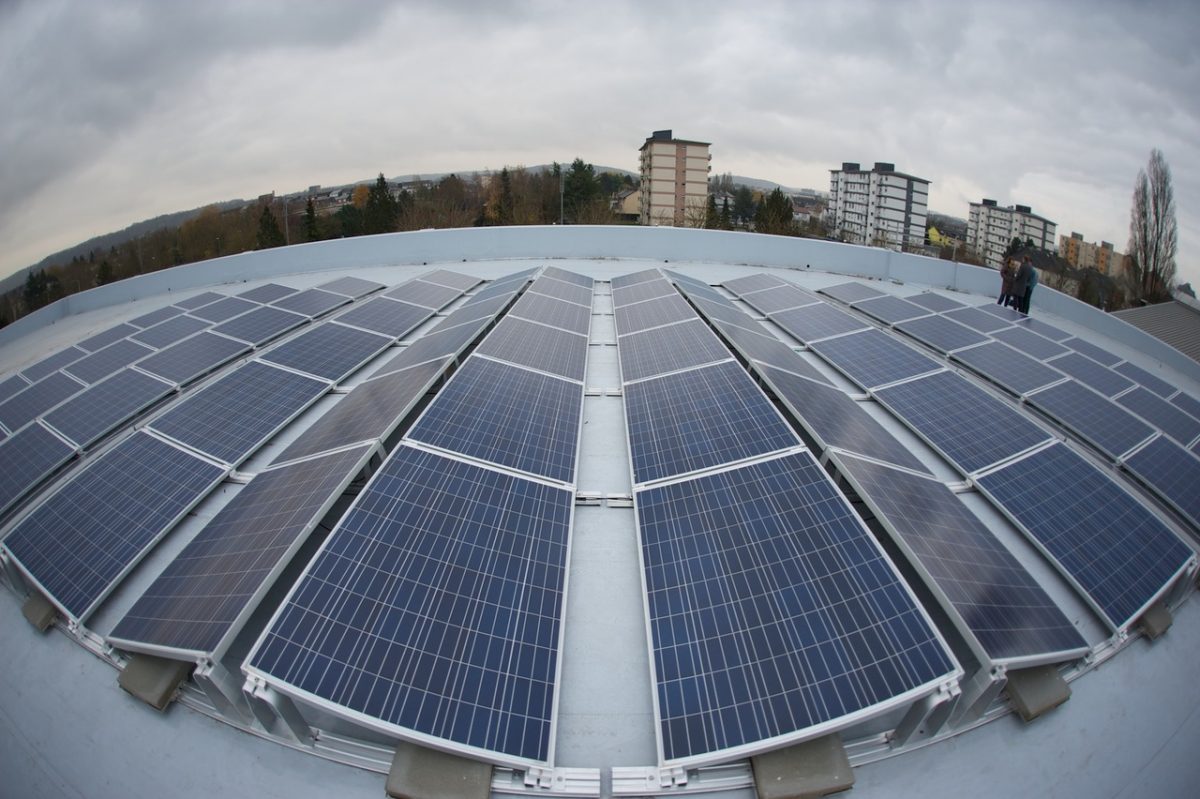
Geschichte einer Enttäuschung
Die Ursprünge der Transitionsbewegung in Luxemburg reichen ein Jahrzehnt zurück, als die Luxemburgerin Katy Fox 2010 mit einer Reihe Gleichgesinnter das Centre For Ecological Learning Luxembourg (CELL) gründete.
Die Idee dazu brachte die promovierte Anthropologin aus Großbritannien mit. Ein wichtiger Anstoß war der „Kopenhagen-Schock“, das Scheitern des Weltklimagipfel von Kopenhagen 2009: „Er war eine schreckliche Enttäuschung“, sagt Norry Schneider, Koordinator des CELL. „Es kam die Frage auf: Was kann man nun überhaupt noch machen? So setzen wir uns zuerst ein Ziel und schauten dann, wie wir dorthin kommen. Ziel ist es, die luxemburgische Gesellschaft weniger abhängig von fossilen Brennstoffen zu machen, um damit besser auf den Klimawandel und die daraus resultierenden Probleme reagieren zu können.“
Initiativen auf Lokalebene
Die Transition ist eine „Graswurzel“-Bewegung, die von den Bürgern getragen wird und dezentral organisiert ist. Hauptziele sind: Den Verbrauch von Energie und Ressourcen und damit den Ausstoß von Treibhausgasen zu verringern, um die Folgen des Klimawandels zu begrenzen; die „Resilienz“ (Widerstandsfähigkeit) der Erde zu stärken, indem die Wirtschaft, angefangen mit der Lebensmittelproduktion „relokalisiert“ wird; Zusammenarbeit und Solidarität zwischen lokalen Akteuren zu fördern sowie den Erwerb von praktischen Fähigkeiten zu unterstützen und so die lokale Autonomie zu stärken.
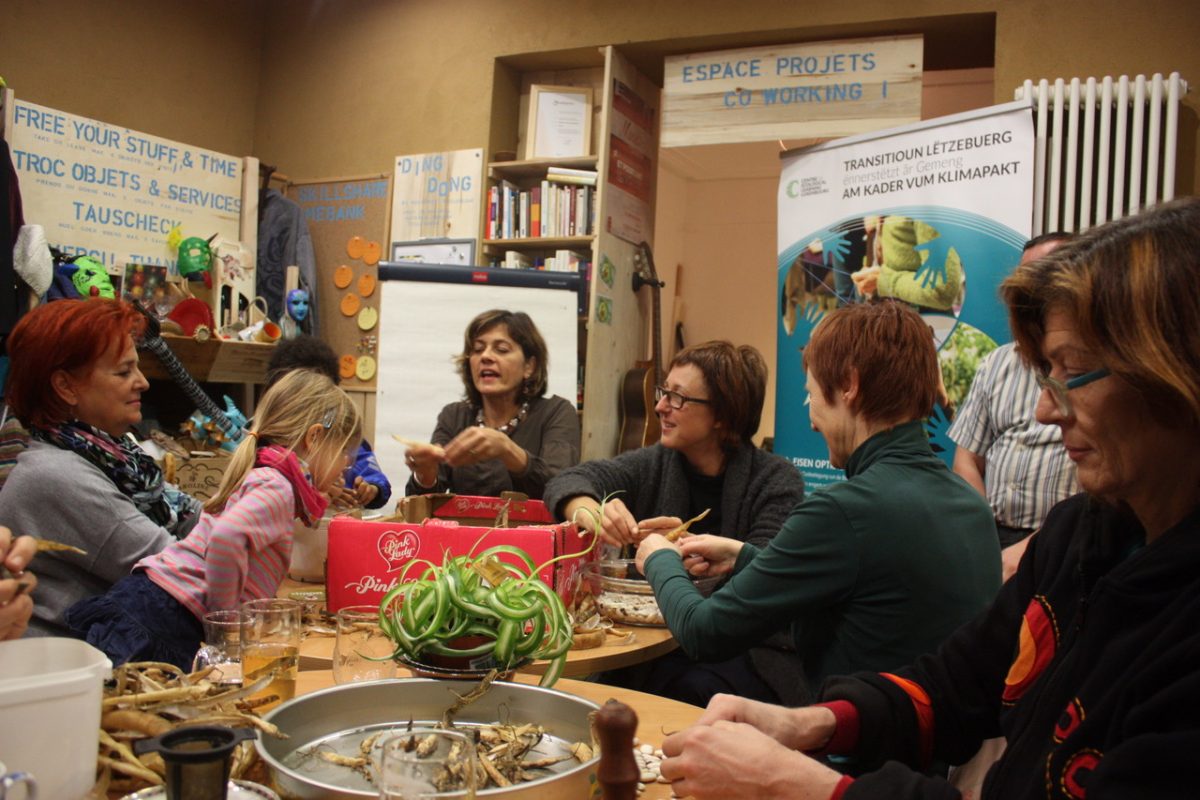
Das CELL ist der Kern der Bewegung. Hier laufen die verschiedenen Initiativen im Land zusammen, die sich für ökologische, soziale und wirtschaftliche Veränderungen einsetzen. „Wir sind eine Bewegung, die sich nicht als politisch gefärbt ansieht“, erklärt Schneider. „Doch hat sich die Erkenntnis durchgesetzt, dass wir uns professionalisieren müssen und eine gemeinsame Plattform brauchen, damit das Ganze nicht auf einmal wieder auseinanderbricht“, führt Schneider aus.
Die ersten beiden lokalen Gruppen hierzulande entstanden in Esch/Alzette mit Transition Minett mit den Schwerpunkten Gemeinschaftsgärten, Ernährung und Energie sowie in Luxemburg auch mit dem Schwerpunkt Gemeinschaftsgärten. Daraus haben sich die Kooperative „Terra“ auf dem „Eecher Feld“, die Gemeinschaftsgärten in Esch und im Petrusstal, die „Maison de la Transition“ in Esch/Alzette sowie, die Energiegenossenschaft TM Enercoop entwickelt. Zudem sind in lokale Initiativen wie „Transition Bonneweg“ und „Transition Westen“ entstanden.
„Die Kooperative ist die Gesellschaftsform, die unseren Vorstellungen am Besten entspricht“, erläutert Schneider. 2016 haben wir die Maison de la Transition in Esch/Alzette aufgemacht – aus der Überlegung, dass wir einen Ort brauchen, wo die Bürger die Welt von morgen denken und ausprobieren können – kurzum, ein Haus, wo die Zukunft gestaltet wird. Das Restaurant und der Laden erleichtern den Einstieg. Die Idee ist eigentlich, dass überall solche Orte entstehen, egal ob das nun ein Restaurant oder etwas anderes ist.
„Äerdschëff“ und „Bamhaus“
Die 2010 auf Initiative von CELL initiierte Plattform „Transition Luxembourg“ besteht heute aus vielen regionalen Gruppen (Luxemburg-Stadt, Minett, Uelzechtdall, Norden, Our, Osten, Westen usw.), verschiedenen Themen (Permakultur, städtischer Gartenbau, Saatgut, Energie, Wirtschaftsmodelle, Do-It-Yourself, Reparaturcafés) sowie Feldprojekten (Äerdschëff, Klimapakt und Bürgerbeteiligung, REconomy, Urban Gardening, Earth our Garden sowie interkulturellen Gärten).
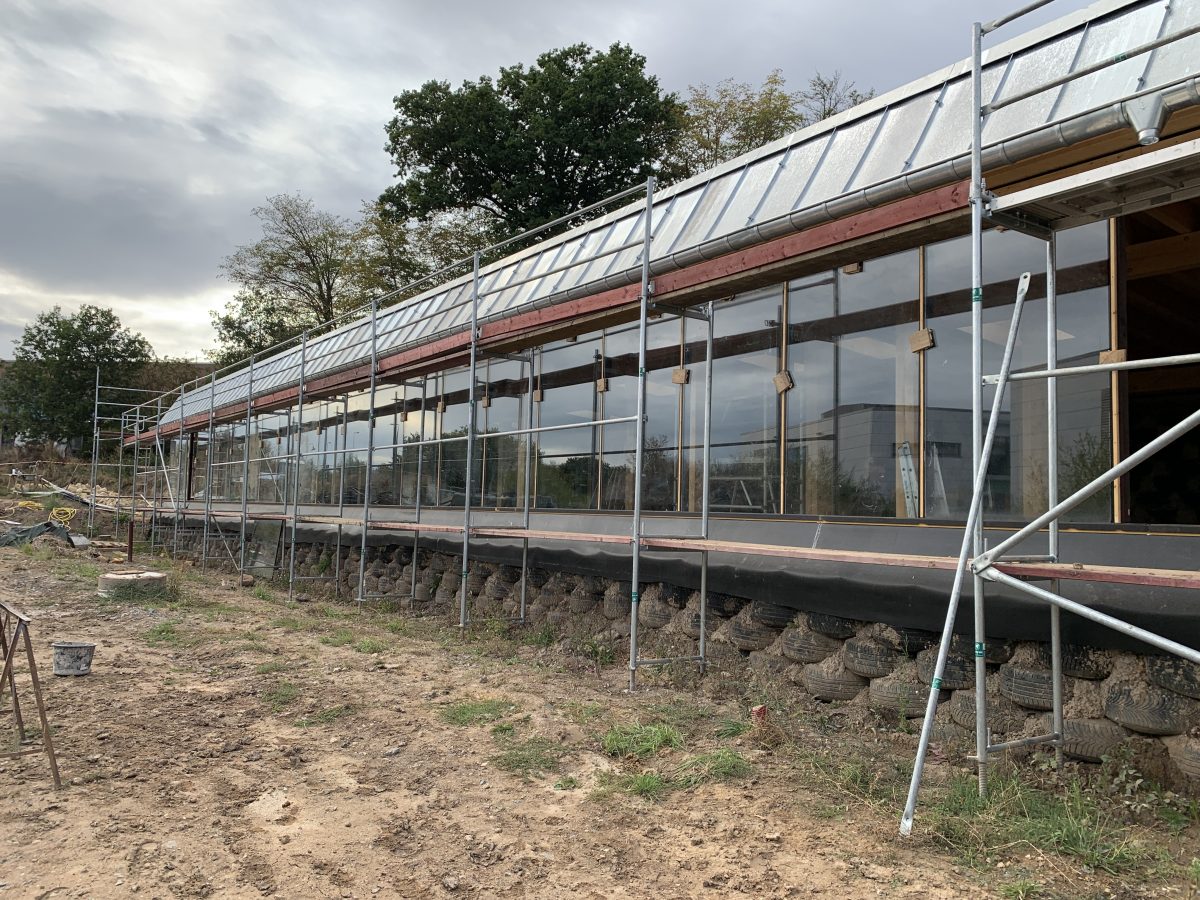
2014 wurde eine Konvention unterschrieben, worin das Umweltministerium das CELL mandatiert, die Gemeinden im Land bei der Umsetzung des Klimapaktes, vor allem bei der Bürgerbeteiligung, zu unterstützen.
Heute beschäftigt das CELL fast 20 Menschen, einige davon in Teilzeit. Die meisten arbeiten in der Maison de la Transition und im Facilitec Zentrum in Esch/Alzette, einige für „Äerdschëff“ in Redingen“ und andere in der Kreativwerkstatt „Bamhaus“ in Dommeldingen.
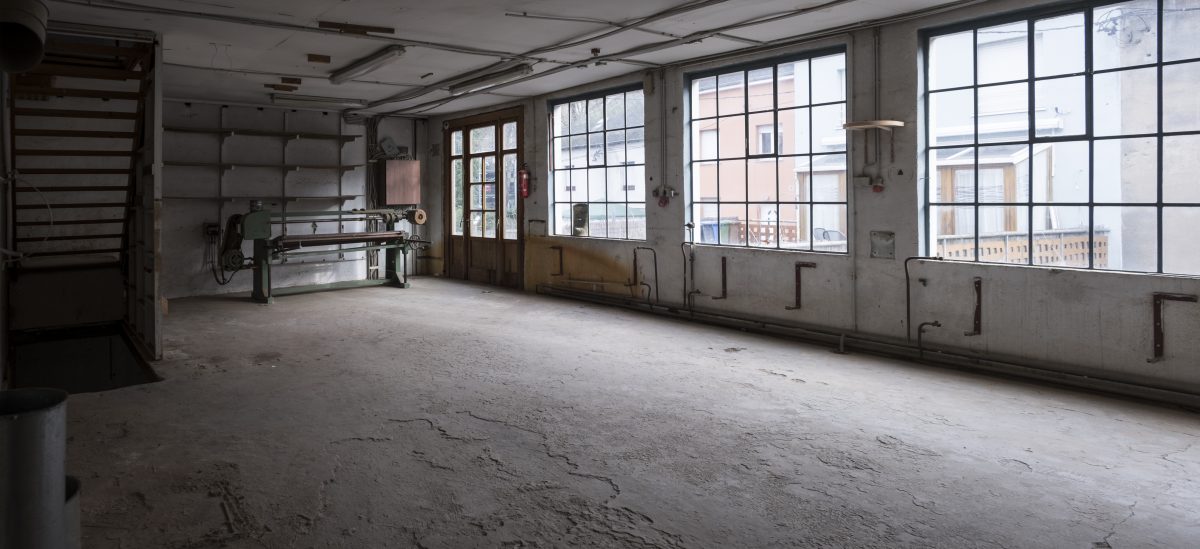
Eine hoffnungsvolle Note schlägt Transitions-Vordenker Rob Hopkins in seinem 2020 erschienenen Buch „From What Is To What If. Unleashing the Power of Imagination to Create the Future We Want“ an. Darin resümiert er das Credo der Transition: „Wenn wir auf die Regierungen warten, dann wird es zu spät sein. Wenn wir als Individuen handeln, dann wird es zu wenig sein. Doch wenn wir als Gemeinschaft handeln, dann könnte es gerade reichen und gerade rechtzeitig sein.“
„Transition Days“
Ursprünglich hatte das CELL für Juli 2020 eine große Veranstaltung zum Thema „Post-Wachstum“ geplant. Nachdem die Corona-Pandemie einen Strich durch die Rechnung machte, ist ein Alternativprogramm aufgestellt worden. Schwerpunkt sind das Thema „Resilienz – was heißt das?“ sowie konkrete Erfahrungen damit. Auftakt der „Transition Days“ macht Transitions-Vordenker Rob Hopkins mit einem Vortrag am 17. September im „Néimënster“. Parallel dazu kommt die Filmdokumentation „Eng Äerd“ heraus, eine Zusammenarbeit mit dem „Centre national de l‘audiovisuel (CNA), welche Initiativen für eine „bessere Welt von morgen“ vorstellt. Mehr Informationen dazu: transitiondays.lu und engaerd.lu
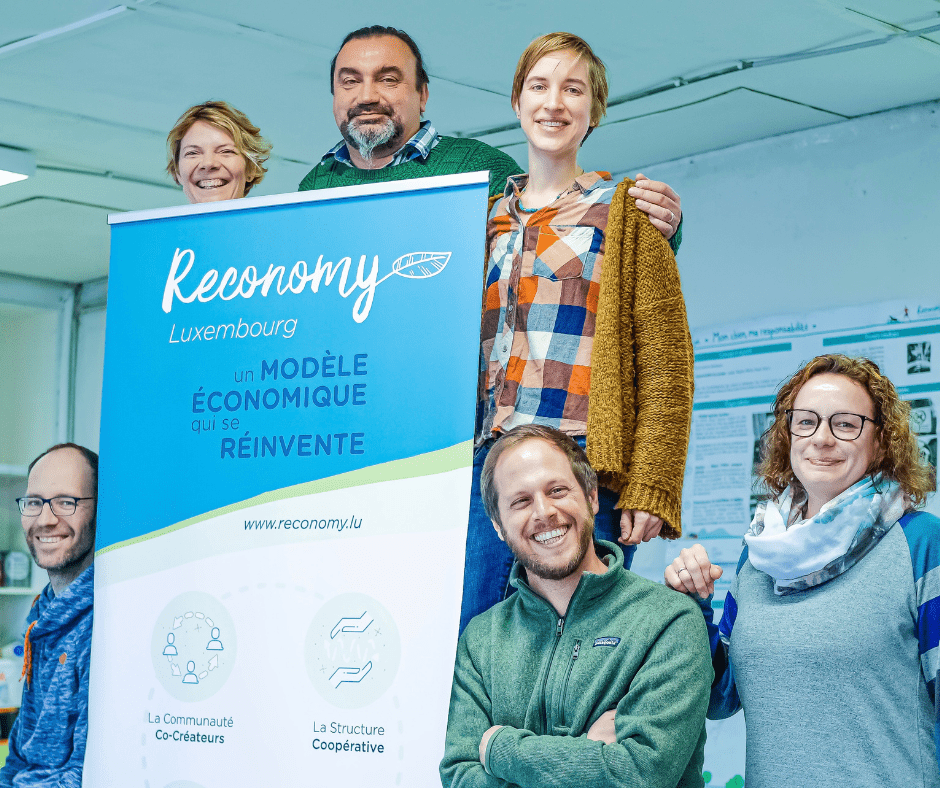
Transitions-Koordinator Norry Schneider:
„Jeder kann einen Beitrag zum Wandel leisten“
Norry Schneider ist Mitbegründer von Transition Minett und seit 2015 Koordinator des Centre For Ecological Learning (CELL), auch bekannt als Transition Hub Luxembourg. Daneben ist er Vizepräsident des Conseil supérieur pour le développement durable („Nohaltegkeetsrot“).
Wofür steht die Transitionsbewegung?
Sie will den Übergang zu einer Gesellschaft gestalten und abfedern, die solidarischer, fairer und ökologischer ist. Das geht nicht mit der Brechstange, aber es muss rasch geschehen, denn das Problem ist, dass das Zeitfenster sich immer weiter schließt.
Ist das Klima überhaupt noch zu retten?
Wir haben eine Reihe „Kipppunkte“ überschritten und können nicht mehr zurück. Bis vor kurzem hätten wir das vielleicht noch hinbekommen, doch diese Chance haben wir verpasst. Deshalb müssen wir andere Wege gehen. Das Klima, die Biodiversität, die Wasservorräte und andere Ressourcen drohen immer mehr aus dem Gleichgewicht zu geraten.
Wo setzt die Transition an?
Unser Ansatzpunkt ist, die Sozialkompetenz einer Gesellschaft zu stärken. Wir reden von Gemeinschaften. Das bedeutet nicht, dass sich die Menschen zurückziehen sollen. Eine Gemeinschaft kann eine Schule, eine Firma, ein Viertel, eine Gemeinde sein. Auf dieser Ebene haben wir in den vergangenen Jahrzehnten sehr viel verloren, und hier bleibt viel aufzubauen.
Gibt es ein Beispiel dafür?
Als wir vor zehn Jahren angefangen haben, war die Permakultur ein großes Thema. Und so haben einige Leute begonnen, Gemeinschaftsgärten anzulegen. Wir versuchen Gärten dort anzulegen, wo sie nicht isoliert sind, sondern möglichst mitten in einem Viertel. Wegen der großen Nachfrage können wir die Projekte heute jedoch nicht mehr selbst machen, sondern nur noch begleiten.
Wie werden die Projekte finanziert?
Unsere Arbeit wird größtenteils vom Umweltministerium finanziert. Unterstützung kommt auch von der Oeuvre Grand-Duchesse Charlotte, von etika, und von einigen Gemeinden, darunter Wiltz. Die Stadt Esch/Alzette finanziert ebenfalls viele Projekte der Transition Minett wie etwa Facilitec, ein Zentrum rund um die Kreislaufwirtschaft, und bezuschusst die Maison de la Transition. Vorsichtig sind wir bei Finanzierung von privater Seite wie Stiftungen und Firmen, doch soll man „nie nie sagen“.
Was genau ist die Rolle vom CELL?
Wir wollen, dass die Menschen sich durch die Praxis inspirieren lassen, wie in der Filmdokumentation „Eng Äerd“. Die Leute sind dich der Probleme bewusst, nur fragen sie sich: Was kann ich als Einzelner in dem Großen und Ganzen tun? Sie wissen nicht, wie sie ihren Beitrag zum Wandel, ihre Arbeit und ihre Familie unter einen Hut bekommen. Und das schafft einen ganz enormen Stress.
Genügt das, um etwas zu bewirken?
Gelegentlich werden wir belächelt, weil das, was wir machen, „klein und niedlich“ ist, während die Herausforderungen enorm sind. Allein bewegen wir natürlich nicht viel, aber es hilft, die Dinge nach und nach auf ein anderes Niveau zu heben, indem Menschen ganz konkret etwas bewegen. Das Thema „Resilienz“ im Ernährungssystem hat zur Gründung eines Luxemburger Ernährungsrates und zu einer nationalen Strategie „Urban Farming“ gwführt. Wir bringen den Praxisbezug mit, der anderen Akteuren teilweise fehlt. Es besteht also wirkliche Komplementarität.
